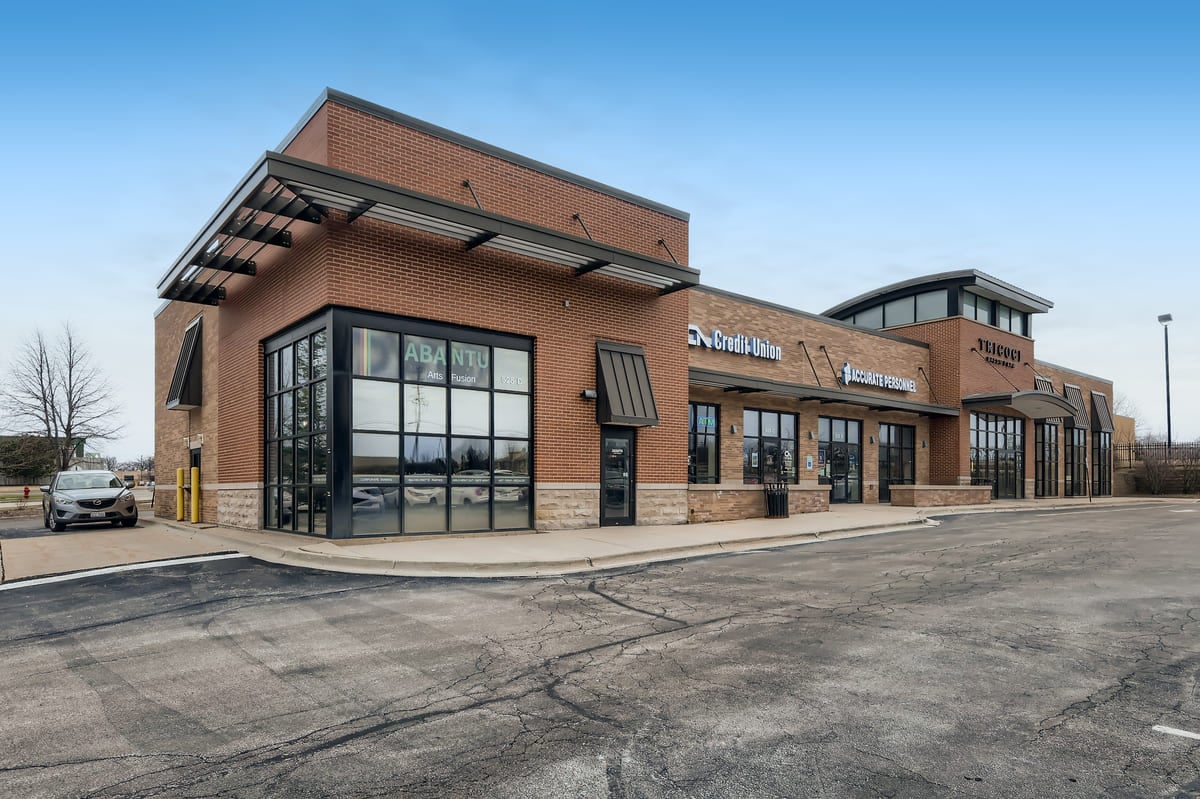
The traditional real estate investment model of "buy, hold, and sell" has served investors well for decades. However, changes in technology, like crowdfunding, as well as in law and finance, have resulted in more opportunities than ever for creative real estate investing.
With some predicted challenges on the horizon and massive shifts in the commercial real estate markets, primarily due to recent events and the financial climate, thinking outside the box and taking an innovative approach to the commercial real estate market can be an elite strategy to overcome some of these challenges.
This blog looks at the different types of creative commercial real estate options, strategies, financing options, and some trends that are shaping the future of the commercial real estate sector.
What Are the Types of Commercial Real Estate?
Below we discuss several types of commercial real estate investors can acquire through creative deals and the benefits and drawbacks of each.
-
Office: Office buildings are often located in select central business district locations and occupied by highly liquid large-scale business tenants such as accounting firms. Office buildings are rated into classes A, B, and C, with A being newer, more amenity-laden buildings and C being older buildings in less desirable locations.
-
Retail: Retail is highly location dependent due to a boom and continued growth of the e-commerce space. Essential services such as grocery stores or dentist practices perform well in neighborhood areas.
-
Industrial: Industrial spaces include factories and warehouses and usually rent at a lower rate. However, these spaces typically require less work than office buildings, making them ideal investment opportunities for investors seeking assets with lower overhead costs or involvement.
-
Multifamily: A multifamily asset is a building with more than one rental space for residents. These may be condos or large-scale apartment complexes. Similarly to office buildings, they are often ranked in age and desirability into classes A, B, and C.
Additional commercial CRE options exist, such as hotels and resorts. However, these are a particular class as they are often run and overseen by the investors that maintain several commercial activities within the asset, such as restaurants, spas, bars, and additional services.
Traditional vs. Creative Real Estate Investing
Traditional real estate investing (generally) involves:
-
Saving for a down payment
-
Soliciting a mortgage
-
Making money either through rental payments from tenants or through asset appreciation
However, this conventional strategy can be limited as credit scores, the lending confidence of banks, and time and financial obligations restrain investors.
Fortunately, cutting-edge technologies now offer alternatives that allow individuals to begin investing for a fraction of the cost and with lower risks. Options such as REITs and crowdfunding are examples whereby investors pool their funds with several other investors to access large-scale assets as shareholders.
 Financing and Creative Investment Options
Financing and Creative Investment Options
If you're new to real estate investing and wondering how to start real estate investing, then a creative low-barrier-to-entry option may be the best starting place.
Creative investment options are any investment that helps commercial investors overcome traditional capital restraints to access returns through real estate. Some non-traditional real estate investment options include the following.
Seller Financing
Seller financing is a mortgage agreement in which the seller of the property finances the buyer's purchase, commonly with a down payment and agreed-upon installment amounts. The seller financing method circumvents the traditional mortgage process through a bank.
Private Equity
Private equity groups invest on behalf of investors, commonly dealing with large capital amounts. To participate in these transactions, investors typically must meet stringent SEC criteria.
Crowdfunding
Real estate crowd-funders use an online platform to raise capital from investors. Developers often manage these deals, allowing investors to participate in large commercial real estate deals for a fraction of the traditional cost.
Joint Ventures
A joint venture is an agreement where two or more parties collaborate on a real estate project. This strategy unlocks more significant capital and can take various forms, such as an LLC partnership or a contractually based agreement.
Creative Value-Add Investing
Value add investing involves acquiring, operating, upgrading, and improving a property to sell at a higher amount. This opportunity is more accessible to a broader range of investors as the properties are generally cheaper or underperforming assets.
Investors can accomplish this in a variety of ways, including:
-
Renovation
-
Repurposing
-
Repositioning
-
Adaptive reuse
Private equity and group investors often favor value-add investing to capitalize on the appreciation.
Market Considerations in Creative Investing and Environmental Best Practices
Similarly to value-add investing, investors looking for innovative options can focus on up-and-coming markets with solid indicators. For example, investors may consider suburbs with stable neighborhoods to invest Chicago real estate with more options.
Key indicators when investing from a market approach include:
-
Job market
-
Median household salary
-
Population
-
Amenities
-
Proximity to the CBD and transport
-
Migration
Investments early in the growth cycle can lead to higher returns on a great deal for investors taking a market approach.
When researching the market, it is becoming increasingly important to research environmental factors, including energy-efficient build-outs, sustainability practices, and how this impacts tenant demand.
 Negotiation and Due Diligence
Negotiation and Due Diligence
There can be a lot of leeway when negotiating commercial deals.
Some areas for negotiation might include:
-
Purchase agreements
-
Lease terms
-
Property specific factors
Additionally, speaking with a specialist property group is one of the best ways to understand your rights and possibilities as an investor.
When undertaking due diligence, always assess property conditions, evaluate the market trends, and conduct financial analysis to mitigate risks associated with creative investment structures.
Future Outlook
It's essential to consider the future market and determine which direction things might be heading in the CRE landscape.
Some trends to keep an eye on include:
-
The "work from home" movement's impact on suburban property vs. office space
-
A booming e-commerce market and a need for warehouse spaces
-
The economic climate, including inflation and interest rate rises
-
The growing need for affordable housing
-
Demand for multifamily in suburban areas, such as opportunities to invest in Chicago real estate
Often, creative investing involves looking to the future and making determinations based on emerging trends and patterns to locate great deals.
Learn How to Start Real Estate Investing With Chicago's CRE Experts
The Chicago market is full of deals for investors looking to secure their financial future. With an extensive knowledge of the suburban Chicago market, Brian Properties can serve clients in need of obtaining or investing in space for lease in office, retail, medical, and industrial buildings.
If you're ready to get started, grab our "Ultimate Guide to Investing in Commercial Real Estate" or reach out to a team member.
Similar Posts
May
How to Make Money (and Have Fun) Investing in Commercial Properties
What if we told you that investing in commercial properties can (and should) be fun?
Sure, it's a great way to make money as an investor and build...
Apr
The Basics of Commercial Real Estate Investing in Chicago
Understanding commercial real estate investing can be your ticket to financial freedom and wealth building. Thanks to the variety, deal structures,...
Aug
Best Practices for Commercial Property Maintenance
Commercial property maintenance is more than just a routine task that must be done to keep your asset in good shape. It can also be a true value-add...



